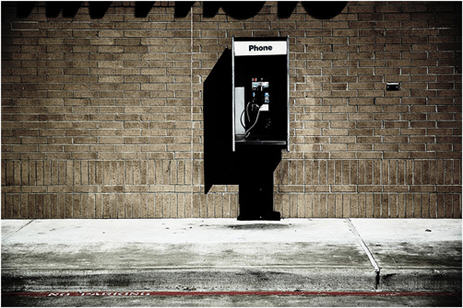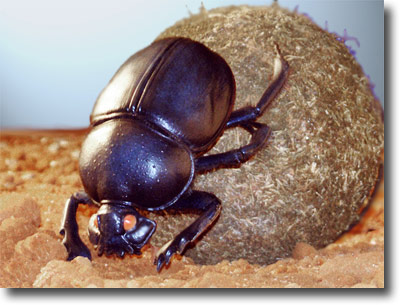
“Mom? Are you sure I was supposed to bring a sack lunch?” It is at least the fifth time he’s asked the question.
“Yes, honey.” I try to sound soothing as I open the car door and pop the trunk lid. I fight the urge to heft the bag inside, and stand back as he finds the shoulder strap.
We start the hike across black pavement while I scan the growing crowd of campers for anything resembling a sack lunch.
“Look! There’s one.” I nod my head in the direction of a young brunette leaning against a large, bright green suitcase adorned with large, red hearts. A matching, miniature bag dangles from one hand.
“That’s probably not a lunch. That could be anything!”, he growls. “I don’t think we were supposed to bring a lunch. We didn’t bring one last year. We went to the dining hall.” His rests on his chest while he adjusts the shoulder strap of the larger bag.
I scan again, as we round the front fender of another parent’s car.
“Look! That has to be a lunch. See? You’re ok!”
A tall, thin boy, whose posture repeats the carelessness implicit in the length of his wavy, brown hair, stands between his parents. A small, brown, bag, imprinted with the words “Whole Foods” in large, green, block-lettering sits between his sneakered feet.
I breathe a sigh of relief at Shane’s silence.
We join the crowd, and as Shane searches for familiar faces I unsheath my camera.
“Mooomm! Don’t do that!” His effort to evade attention keeps his volume low.
“I want some pictures.” I explain while checking other parents’ shoulders for camera bags.
 “What kind of dog do you think that is?” Shane attempts to draw my attention to a dog of obvious varietal lineage dancing on the end of a leash held by the woman standing next to me. He moves closer to the dog, and I wonder if he feels I’m less likely to photograph him surrounded by strangers.
“What kind of dog do you think that is?” Shane attempts to draw my attention to a dog of obvious varietal lineage dancing on the end of a leash held by the woman standing next to me. He moves closer to the dog, and I wonder if he feels I’m less likely to photograph him surrounded by strangers.
I snap a shot. He tidies his hair, self-consciously.
“Hey, Shane!” We both hear it.
“Who was that?”
“Nick!”, he answers in a voice that suggests I should have known, while craning his neck in the direction of the sound. “He’s gone.”, he says, leaving “…and its all your fault.” unspoken.
A tide of campers and parents moves in the direction of the buses.
“Get your bag.”, I say as I zip my camera back into the bag, hoping to lessen his stress.
Uncertainty dances through Shane’s eyes as he reaches, again, for the shoulder strap.
“Where are we going?”, his voice mirrors his eyes.
“It looks like everyone is moving towards the buses.” I look back over my shoulder to see him heft the bag.
“Are you sure?”
I take a step back and put my arm around his shoulder.
“Come on.”
He walks under my arm until we reach the crowd gathered beside Bus 2, his bus. Standing much taller than he had when last we saw him, with shoulders and arms that speak of impending manhood; Trexler waits next to his Dad. Shane shirks my shoulder for that of his friend. The two former teammates complete the obligatory bump followed by an offering of all the testosterone they can muster in the form of an urban-style handshake.
“Hey…”, Shane mutters a studied disinterested greeting.
“Your bus?”, Trex points.
“Yeah…”
“What cabin?”
“Ten.”
A lazy smile slides across the taller boy’s face.
“Me, too.”
Shane fails in his effort to control his grin. “Cool!”
The two boys begin to rehash last year’s experience.
“Yeah, we stayed up till six in the morning…” Trexler talks through his grin.
“Don’t they wake you at eight?”, I ask, sharing a smile with Trexler’s Dad, Mr. Curtis, who employs his eyes as his mouth is busied with his coffee cup.
A boarding line begins to form. Shane hefts his bag with renewed enthusiasm, maintaining his place beside his friend. I force myself to take a step back. Trexler’s Dad joins me with a look that pats me on the back.
Minutes later, the line begins to move and so do I. The last thing I see before feeling Shane’s shoulders under my hands is the look of abject horror crossing his face.
“Moomm…”, he moans, softly. I pull away quickly, smiling my understanding, and return to my place beside Mr. Curtis, whose faraway gaze assures me of his willingness to overlook my unfortunate show of emotion.
Unreasonably, I worry that the counselor at the head of the line won’t find Shane’s name on the list. I remember worrying the same worry last year. As both boys board, my companion turns to me.
“Looks like they made it…”, he smiles a salutation and disappears behind the bus on his way to join the workforce.
I strain to maintain sight of the bill of Shane’s cap as he disappears behind the smoky windows of the bus. Despite my efforts, I lose sight of him.
Perhaps he sat on the other side. I walk to the other side of the bus, willing a look of casual interest as I stand in a median in dire need of mowing. After several minutes I am sure he is not there.
I consider leaving. After all, he probably won’t notice if I stay. But, I do.
I cross back the way I came and find a spot I’m sure is visible to anyone sitting on this side of the bus. If he only looks once, I should be here, I reason.
The driver makes ready to leave by lowering the doors of the luggage bins to reveal the bill of Shane’s cap. I stand quietly as he searches. I see him see me.
He raises his hand to his cap, and three fingers repeatedly brush the brim. I wonder at the movement until I see the intensity in his eyes.
I wave back, and we both smile.








_half.jpg)










